Protests erupted in Lebanon last Thursday in response to a government announcement of austerity measures, including a tax on WhatsApp calls. While the WhatsApp tax has made headlines worldwide and is being widely reported as the cause of the uprising, public anger actually runs much deeper, and the current demonstrations are in fact the eruption of years of frustration with a corrupt and ineffective political elite. These protests – which have brought people together across class, regional and sectarian divides – could mark a new era in Lebanese, and perhaps regional politics. Here’s why:
What’s happening?
The protests were sparked by the announcement of a tax on the use of WhatsApp – the online communications service used daily by millions of Lebanese people in lieu of the traditional, and extortionately expensive, telecommunications services. The telecomms industry in Lebanon – like most other sectors – has suffered from endemic corruption and a lack of competition, leading to poor development of infrastructure and highly priced services. For many people in Lebanon, WhatsApp is the only affordable way of staying in touch with people, so taxing the service would disproportionately affect poor, marginalised communities (for example, Syrian refugees who rely on WhatsApp to communicate with their families back home).
 Demonstrators protesting the proposed WhatsApp tax (image: New York Post)
Demonstrators protesting the proposed WhatsApp tax (image: New York Post)
The announcement came in the midst of a devastating time for the country, which is battling forest fires that are destroying vast areas in the mountains south of Beirut. The fires served to highlight the incompetence of the government, which had failed to put in place an effective preventative strategy and demonstrated such a poor response that civilians were coming together to provide support for the displaced people in the absence of the state. The government turned to neighbouring countries for help, who provided helicopters to douse the flames. However, it transpired (as explained in the most recent episode of The Lebanese Politics Podcast) that the government had in fact been given its own firefighting helicopters after devastating fires in 2007, but had failed to maintain them in the years since.
These events fed into the widespread public anger that has been brewing for decades across all social classes and sectarian groups, as a result of a combination of local grievances and a wider frustration at the incompetence and corruption of the political elite. While politicians in Beirut have been getting rich, ordinary people have been left without jobs, water, electricity and basic healthcare.
 Last month it was reported that Prime Minister Saad Hariri gifted $16 million US dollars to a South African bikini model. Meanwhile, the country faces an economic crisis and workers at his companies complain they have not been paid in months. (image: New York Times)
Last month it was reported that Prime Minister Saad Hariri gifted $16 million US dollars to a South African bikini model. Meanwhile, the country faces an economic crisis and workers at his companies complain they have not been paid in months. (image: New York Times)
While there have been some instances of violence reported over the last week, generally speaking the demonstrations have been peaceful and have been characterised by shows of kindness, unity and even celebration. A number of heartening stories have emerged from the streets:
Every morning, people have rolled up their sleeves and worked side by side to clean up the mess left from the previous day’s festivities, before beginning again. Meanwhile, a video has gone viral of a group of protestors singing the popular children’s song, ‘Baby Shark’, to a baby in a car who was frightened by the noise. Another video has gone viral of a soldier sent to control the demonstrations crying, as protesters hug and comfort him. And the iconic image that has come to represent the protests is of a woman kicking the bodyguard of a Minister to prevent him from firing his gun on demonstrators.
 Protestors roll up their sleeves and clean up the streets before another day of demonstrations (image: Al Araby)
Protestors roll up their sleeves and clean up the streets before another day of demonstrations (image: Al Araby)
Why is this important?
What is most remarkable about the protests is how they have brought together groups of people that were previously pitted against one another, including regional and class groups, but most notably, different religious sects.
Lebanon is home to three major sectarian groups – Maronite Christians, and Shia and Sunni Muslims – and Lebanese politics has been divided along sectarian lines since the civil war of 1975-1990 concluded with an agreement to share power between these groups. Many blame Lebanon’s sectarian makeup for the political and economic problems the country faces today. But this narrative is simplistic, and does not explain how a cross-sectarian political elite has manipulated the system to benefit only themselves and their cronies, while the Lebanese people – Christians and Muslims alike – continue to suffer the consequences.
 The aftermath of forest fires in Chouf, Lebanon, October 2019 (image: Arabian Business)
The aftermath of forest fires in Chouf, Lebanon, October 2019 (image: Arabian Business)
Corruption and sectarianism in Lebanon
Since the days of Ottoman rule, power and wealth in Lebanon have been distributed through networks of patronage. This means that the central authorities distribute financial resources to the regional municipalities, who are ultimately responsible for providing services and infrastructure to the people.
The current sectarian power-sharing agreement operates through the same patrimonial system. If the local authorities don’t deliver very basic services, they won’t be re-elected. So in order to keep funding coming from the centre, they allow the political elite and their associated businesses to get rich, awarding them lucrative contracts for regional projects and allowing them to line their pockets.
It’s a vicious cycle: the daily lives of the Lebanese people depend on the municipal authorities, who are in turn dependent on the political elite. Therefore the elite continue to profit from the system, keeping Lebanon poor and everyday people totally reliant on the very system that is screwing them over. They have essentially built a self-sustaining system which exists purely for their own enrichment, without actually having to do their job of governing the country.
They have also benefitted strategically from perpetuating the sectarian divide, because it has boosted their traditional support bases and prevented the emergence of unified, cross-sectarian resistance movement. Until now.
What does this mean for the Middle East?
That depends on what happens next. Many expected that on Monday morning people would go back to work and things would return to normal. That hasn’t happened, and the demonstrators seem as determined as they were six days ago that the ruling class is done messing with them. Every day that people remain in the streets, banks, shops and offices remain closed, preventing the generation of wealth for the elite. Eventually, something will have to be done.
Many are saying that the protests represent the real end of the civil war, which has continued to divide the country long since the peace settlement was officially reached. They argue that the protests are shattering the façade of sectarianism and finally uniting the country.
 Muslims and Christians protest together in Beirut (image: AJ+)
Muslims and Christians protest together in Beirut (image: AJ+)
If this leads to meaningful political change in Lebanon, it could have further-reaching implications for other countries in the region such as Syria, Yemen, Saudi Arabia, Bahrain, where political elites and extremist groups strategically deploy sectarian narratives in order to justify corruption, marginalisation, repression and war.
Could the ideological spell of sectarianism finally be broken? We’ll have to wait and see. In the meantime, we stand with our Lebanese friends on the streets. They deserve a better future for their country and a government that cares about them.
If you want to learn more about what’s going on in Lebanon, we recommend the following resources:
The art of not governing – Synaps
Lebanon on fire – Episode 59, The Lebanese Politics Podcast
The Politics of Sectarianism in Postwar Lebanon
Cover image: AJ+

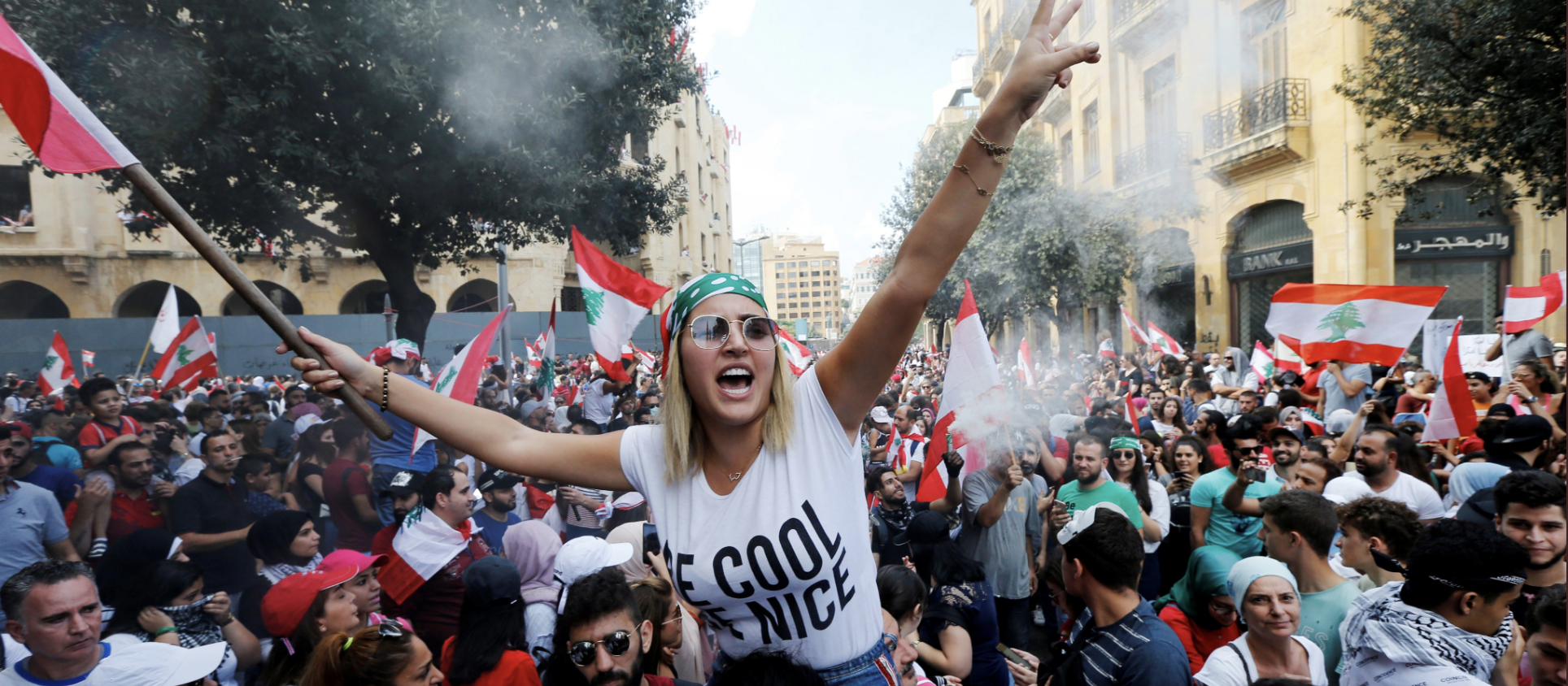

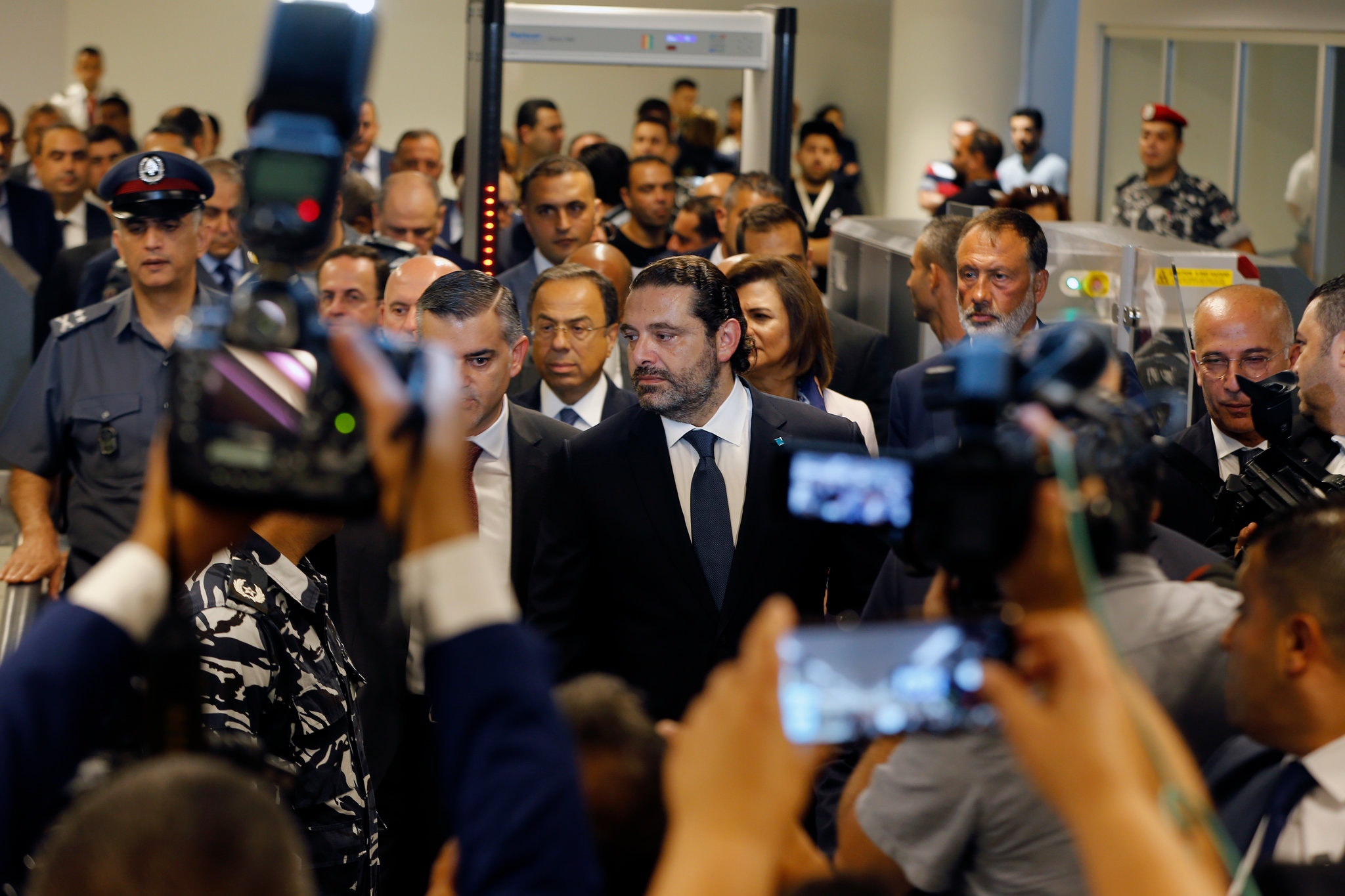
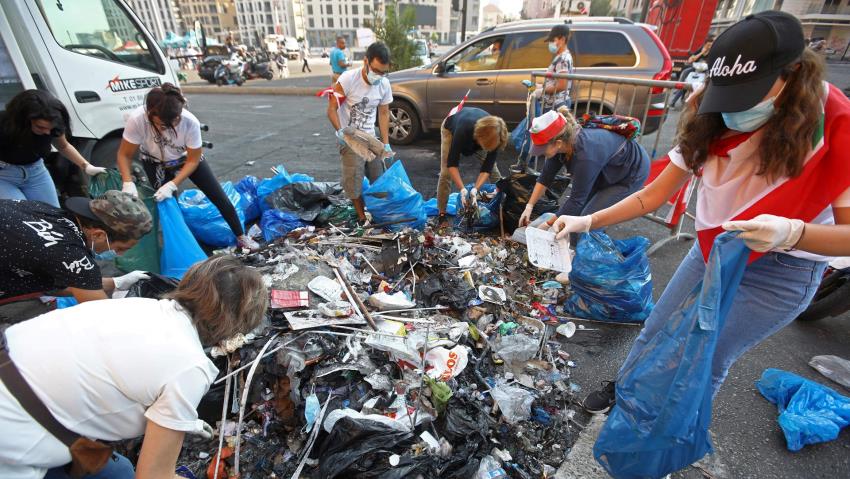
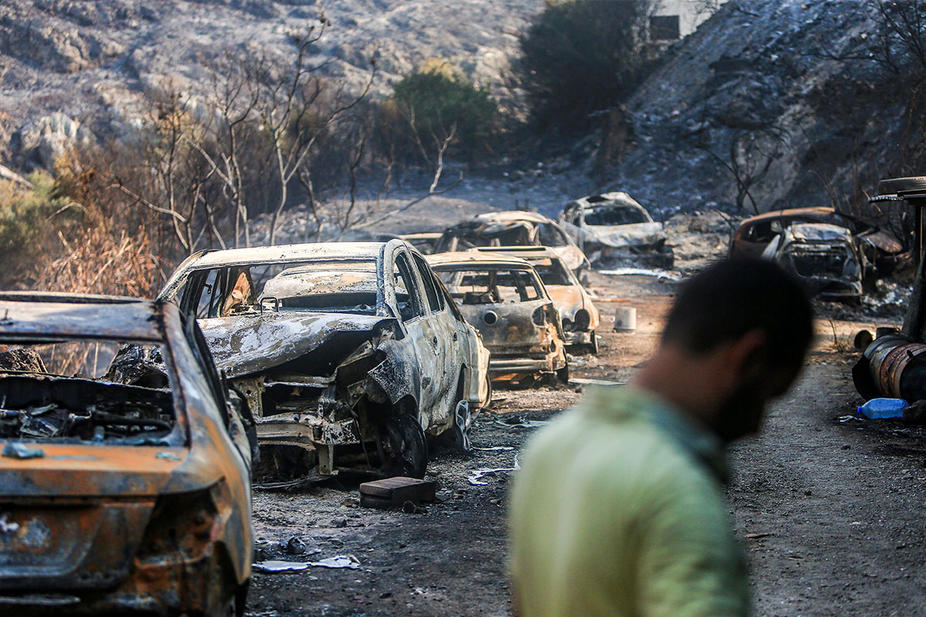
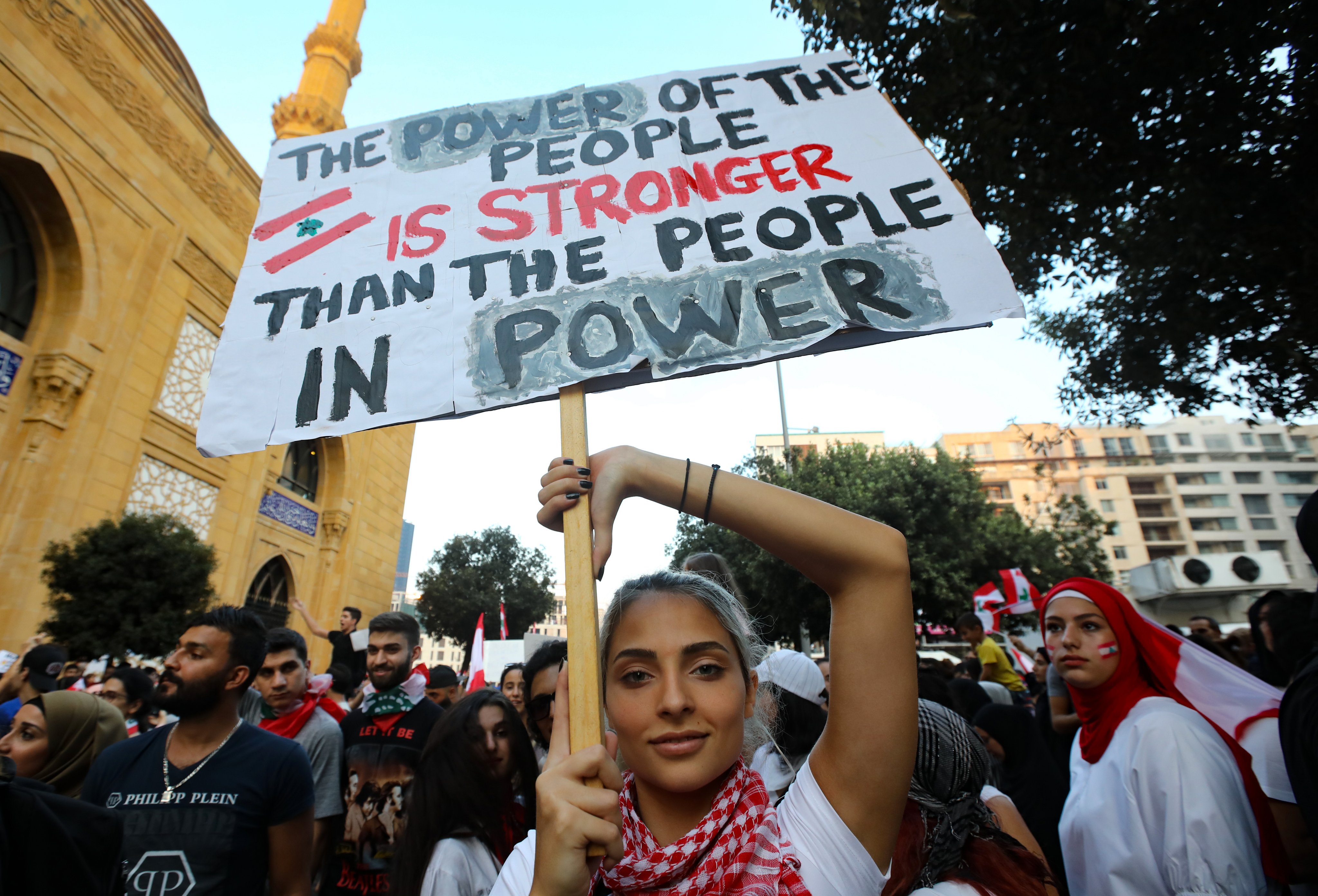

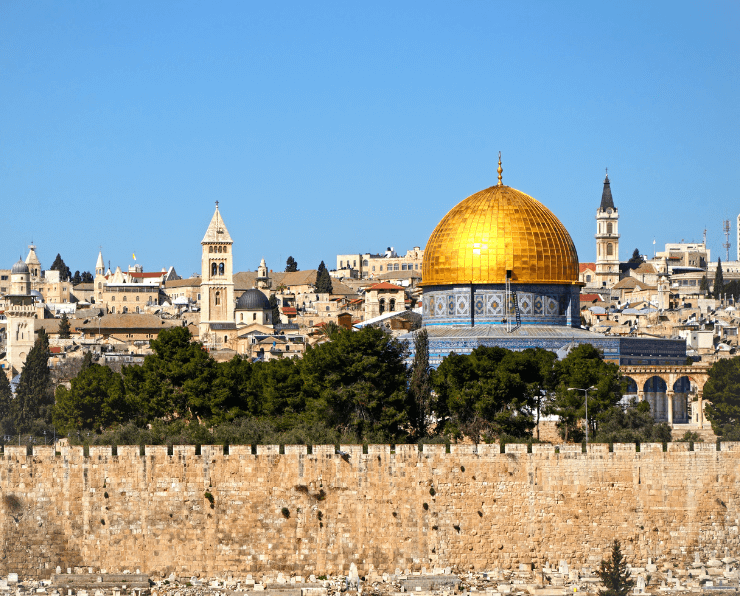
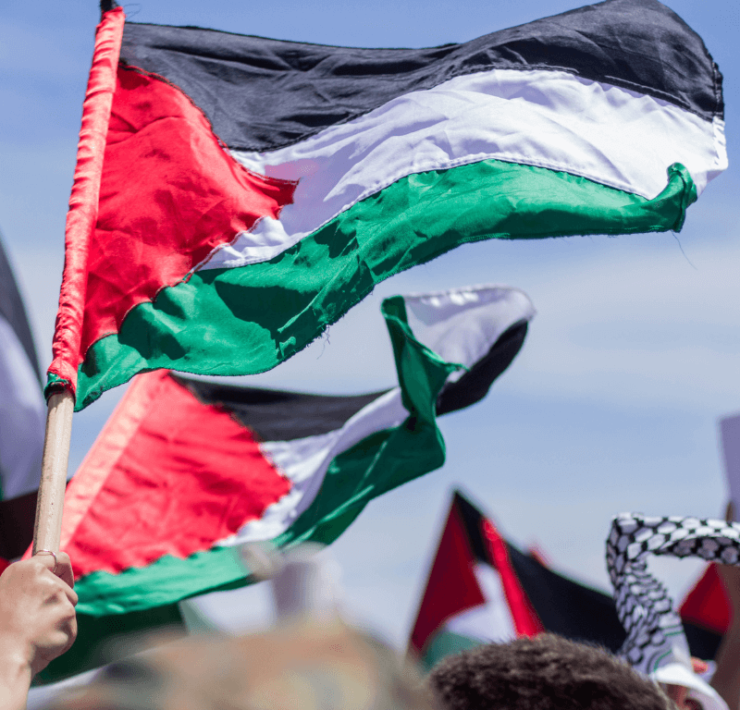


Love this – really informative! x
________________________________
Thank you! Glad you found it useful x